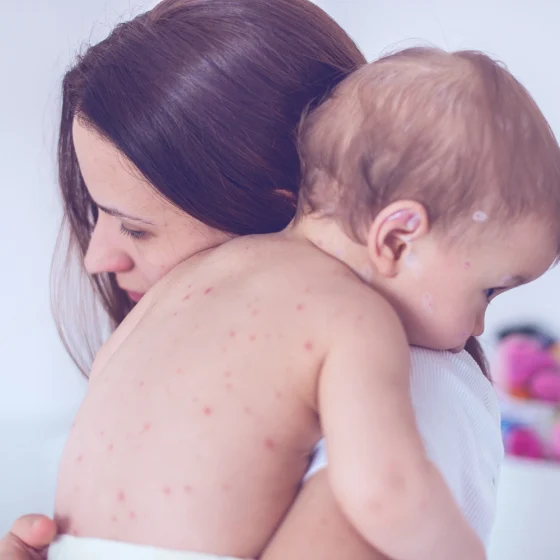Varicella
Key facts Chickenpox is a very contagious infection caused by the varicella zoster virus. The most common symptom of chickenpox is an itchy red rash with fluid-filled blisters. Most cases of chickenpox are mild and get better on their own. Serious complications of chickenpox include infected blisters, pneumonia and meningitis. Vaccination is the best way to protect yourself against chickenpox. Chickenpox (varicella) What is chickenpox? Chickenpox is a very contagious infection caused by the varicella zoster virus. Chickenpox can affect anyone at any age. Most people with chickenpox have mild symptoms and get better quickly. In rare cases, the virus can cause

